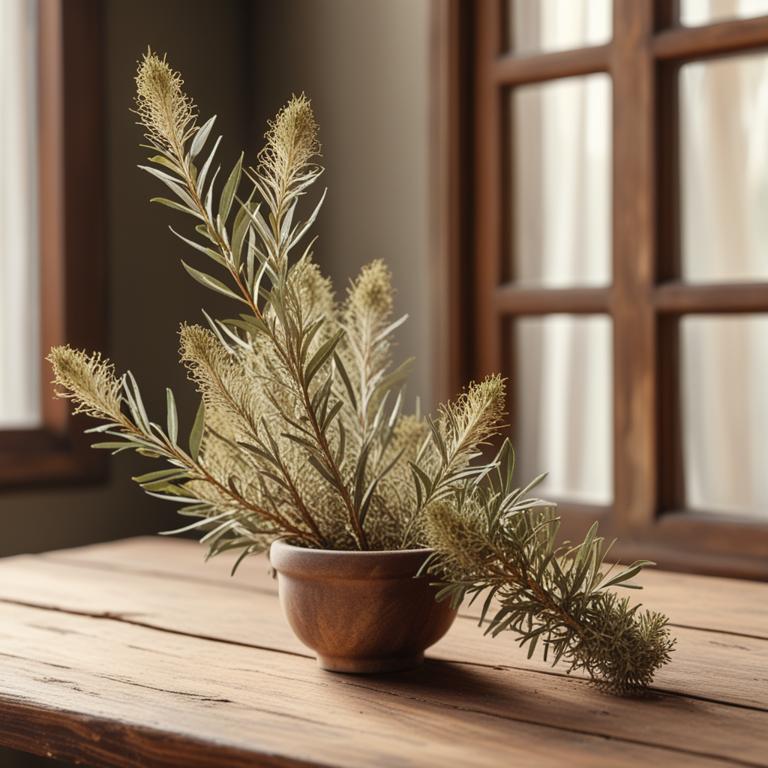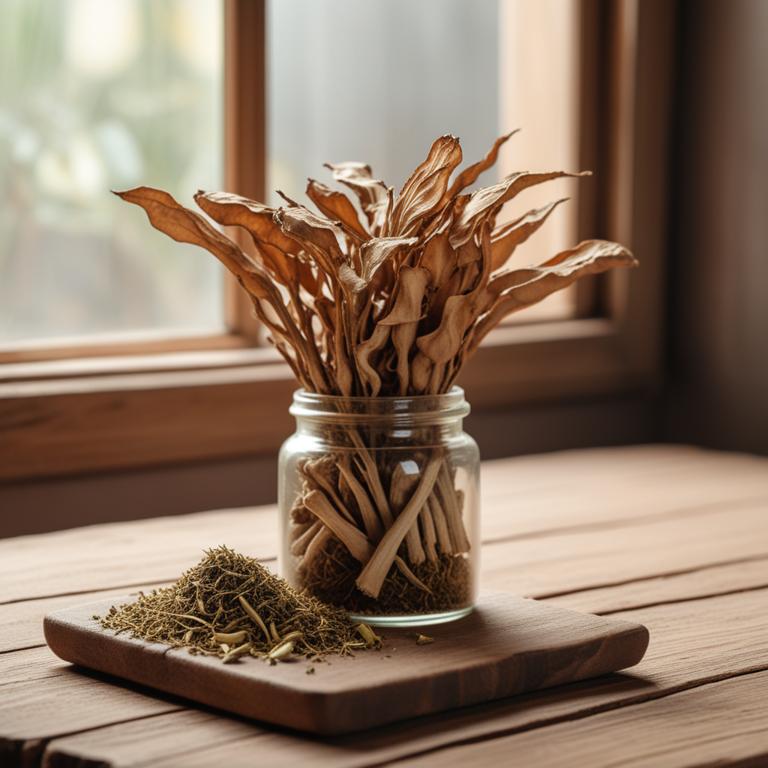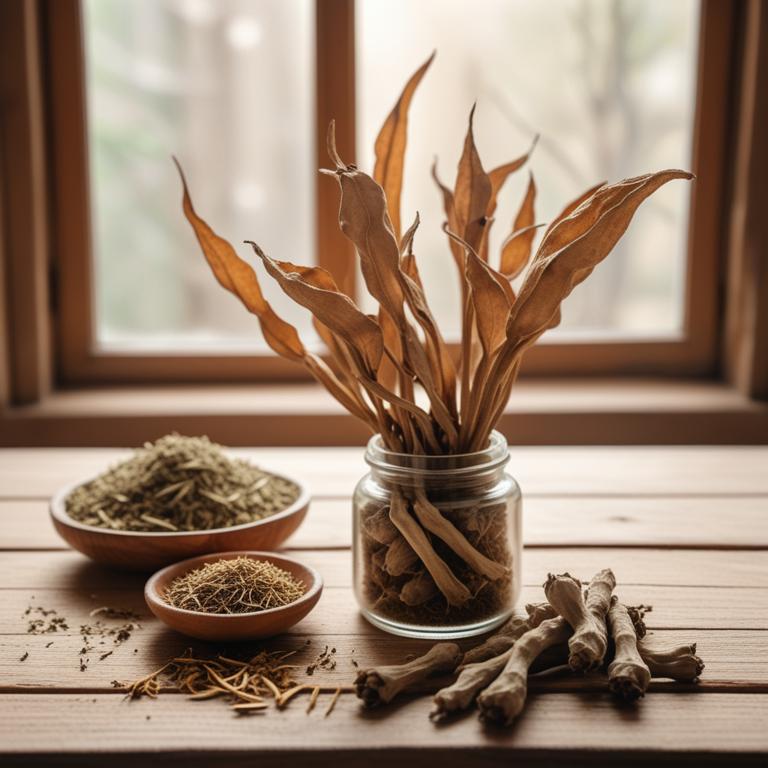Updated: Dec 1, 2024
Itchy Ears: Causes and Homeopathic Solutions Using Medicinal Herbs
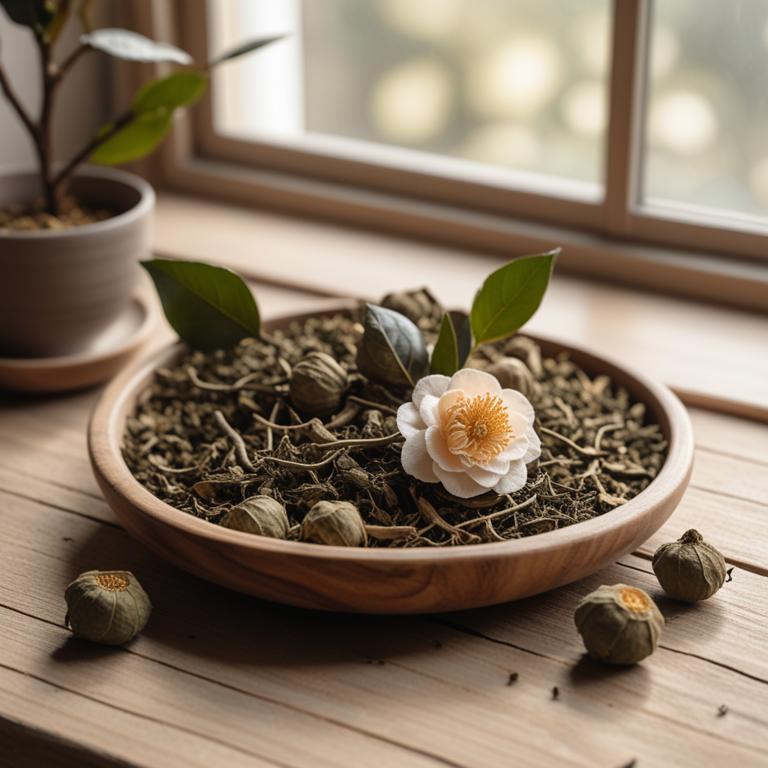
Itchy ears can be a frustrating and annoying problem that affects your daily life.
The constant itching, scratching, and discomfort can make you feel self-conscious and distracted. Itchy ears are often caused by earwax buildup, dry skin, allergies, or infections. Sometimes, it's just a reaction to a new soap or shampoo. Whatever the reason, itchy ears can be a real nuisance.
Herbal remedies can be a helpful way to soothe and calm itchy ears. Plants like calendula, chamomile, and tea tree oil have anti-inflammatory and antiseptic properties that can help reduce swelling and prevent infection. You can use these herbs to make teas or infusions that you can drop into your ear to help calm the itching. Calendula tea, for example, can be made by steeping dried calendula flowers in hot water, then straining and letting it cool before using it to treat itchy ears. Tea tree oil, on the other hand, can be mixed with a carrier oil like coconut or olive oil and applied gently to the affected area.
These herbal remedies can be a natural and gentle way to find relief from itchy ears.
Table of Contents
What triggers itchy ears?
The main causes of itchy ears are quite common and can be easily treated.
Eczema, for instance, is an allergic skin condition that causes dry, itchy skin and can affect the ears too. People with eczema may experience intense itching in their ears, making it uncomfortable to wear headphones or even sleep on their side. Psoriasis is another skin condition that can lead to itchy ears. This autoimmune disease causes skin cells to build up and result in itchy, scaly patches, often on the ears. The itching can be severe, especially when the patches crack and bleed. Allergies are also a common cause of itchy ears.
When people are allergic to certain substances like dust mites, pollen, or mold, their skin can react by becoming itchy and inflamed. This can lead to itchy ears, especially if the allergen enters the ear canal. Dry skin is another reason people experience itchy ears. When the skin on the ears becomes dry due to cold weather, air conditioning, or harsh soaps, it can become itchy and flaky. This is often accompanied by a sensation of tightness or burning. Earwax buildup is a common and harmless condition that can cause itchy ears. When earwax accumulates in the ear canal, it can push against the eardrum, leading to discomfort and itching.
This can be caused by using Q-tips to clean the ears, which can push the wax further into the ear canal.
What benefits are associated with using herbs to soothe itchy ears?
Using herbs for itchy ears can be a great way to find relief from discomfort.
One of the main benefits is that they can help reduce inflammation and soothe the skin inside your ear. This can make the itching feel better and even stop it completely. Some herbs have antimicrobial properties, which can help fight off infections that might be causing the itchiness.
Others have anti-inflammatory properties, which can reduce swelling and redness. By applying a solution or oil made from these herbs directly to your ear, you can get quick relief from the itching and discomfort. Additionally, some herbs can even help to dry out the ear canal, which can be especially helpful if you have an ear infection or excessive earwax.
Using herbs can also be a gentle and natural way to treat itchy ears, without the risk of harsh chemicals or side effects from medications.
What are the key medicinal herbs for itchy ears?
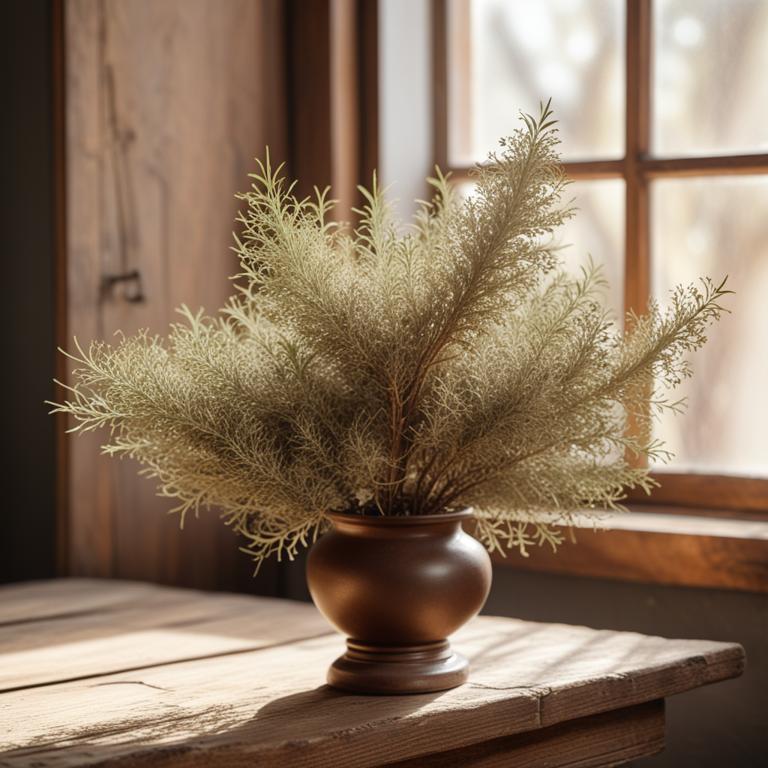
If you're dealing with itchy ears, herbs can be a great natural solution.
One popular option is Melaleuca alternifolia, also known as tea tree oil. This herb has antifungal and antibacterial properties, which help to combat infections that can cause itching. It's also anti-inflammatory, reducing redness and swelling in the ear canal. Calendula officinalis, or calendula, is another herb that can help soothe itchy ears. Its anti-inflammatory properties calm the ear canal, reducing irritation and discomfort. Calendula also promotes healing, which can speed up the recovery process.
Echinacea purpurea is a flowering herb that's often used to boost the immune system. When it comes to itchy ears, it can help fight off infections and inflammation. This herb also has anti-inflammatory properties, which can reduce redness and swelling. Aloe barbadensis, also known as aloe vera, is a popular herb that's often used to soothe skin irritations. Its anti-inflammatory properties can calm itchy ears, reducing redness and swelling. Aloe vera also promotes healing, which can help to speed up the recovery process. Aloe vera's healing properties are due in part to its high water content, which can help to keep the ear canal moist and hydrated.
This can be especially helpful if you're dealing with dry or irritated ears.
What are the most popular herbal preparations for treating itchy ears?
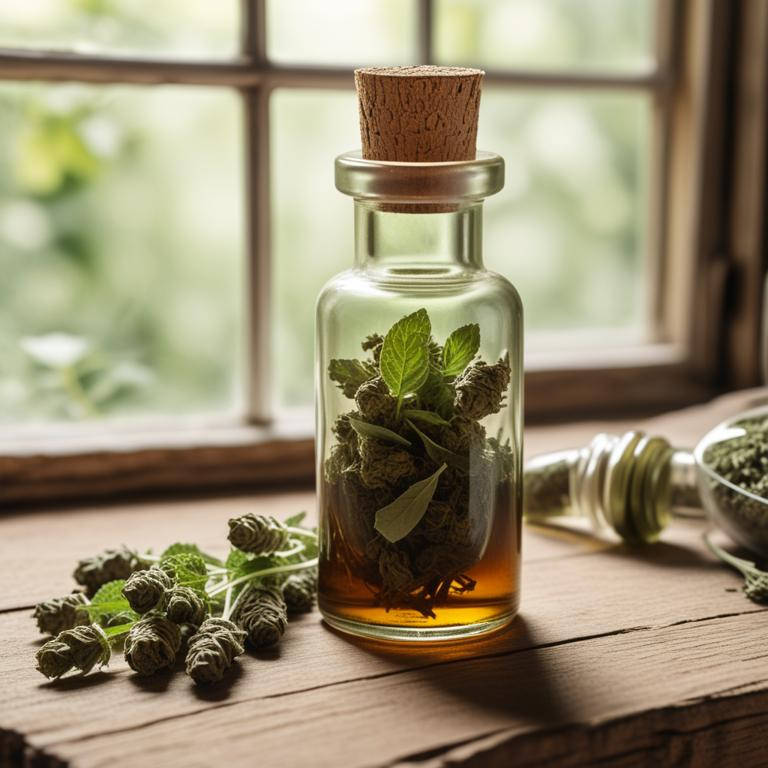
Herbal preparations can be really helpful for itchy ears.
A salve is a mixture of herbs and oils that you can apply directly to the affected area. It's great for soothing and calming the skin, reducing the itching and discomfort. A tincture is a concentrated liquid made from herbs that you can put a few drops of into an ear drop solution. It helps to reduce inflammation and kills germs that might be causing the itchiness. An infusion is a liquid made by steeping herbs in hot water.
You can use this liquid to clean and soothe the ear canal. It's especially good for removing wax and debris that might be contributing to the itchiness. A decoction is similar to an infusion, but you boil the herbs first to release their active ingredients. This makes it more potent and effective at killing germs and reducing inflammation. An ointment is a thick paste made from herbs and oils that you can apply to the affected area.
It provides a protective barrier that helps to lock in moisture and soothe the skin.
Additional Resources:
What herbs should you steer clear of if you have itchy ears?
If you have itchy ears, it's best to steer clear of Eucalyptus globulus oil.
Applying this oil directly to your ears can cause an allergic reaction, which might make the itching worse. The same goes for using products that contain Lavandula angustifolia, as this herb can also trigger an allergic response in some people. Ginkgo biloba is another herb to watch out for. While it's often used for its health benefits, ingesting Ginkgo biloba can interact with certain medications.
If you have itchy ears and are taking any prescription medications, you should avoid using Ginkgo biloba products until you talk to your doctor. Cassia alata is sometimes used to treat skin conditions, but it can be too harsh for sensitive skin, especially when applied to the ears. Using Cassia alata products on itchy ears can cause irritation, redness, and even more itching. Teucrium chamaedrys, also known as Woodland germander, is not typically associated with ear problems. However, if you're prone to allergies, it's still a good idea to avoid using products that contain this herb, as it can cause an allergic reaction in some people.
It's always a good idea to talk to your doctor or a healthcare professional before trying any new herbal remedies, especially if you have itchy ears.
FAQ
Are there any specific herbs that can prevent itchy ears?
Some herbs like calendula and tea tree oil have been known to help soothe itchy ears.
Calendula's anti-inflammatory properties can calm irritation, while tea tree oil's antifungal properties can combat infections that may be causing the itchiness.
Applying a few drops of oil or a calendula-infused ear drop may provide relief.
Is it safe to use herbal remedies for itchy ears during pregnancy?
When you're pregnant and dealing with itchy ears, you might consider using herbal remedies.
However, some herbs can be a problem during pregnancy, like pennyroyal and blue cohosh, as they can cause problems for the baby.
Other herbs like tea tree oil and calendula might be safe, but it's essential to check the ingredients and use them carefully.
Are there any herbs that can reduce the frequency of itchy ears?
Some people find relief from itchy ears with the help of herbal remedies like tea tree oil and aloe vera.
These natural ingredients have anti-inflammatory properties that may soothe the skin and reduce irritation.
Applying a small amount to the affected area may help calm the itch and promote healing.
Can i combine different herbal remedies for itchy ears?
You can combine different herbal remedies for itchy ears, but be cautious.
For example, mixing tea tree oil with aloe vera oil might help soothe itchy ears. However, some herbs like garlic oil can be too strong and cause more irritation.
Start with small amounts and see how your ears react.
Related Articles

Bruises: Causes, Symptoms, and Herbal Preparations for Relief
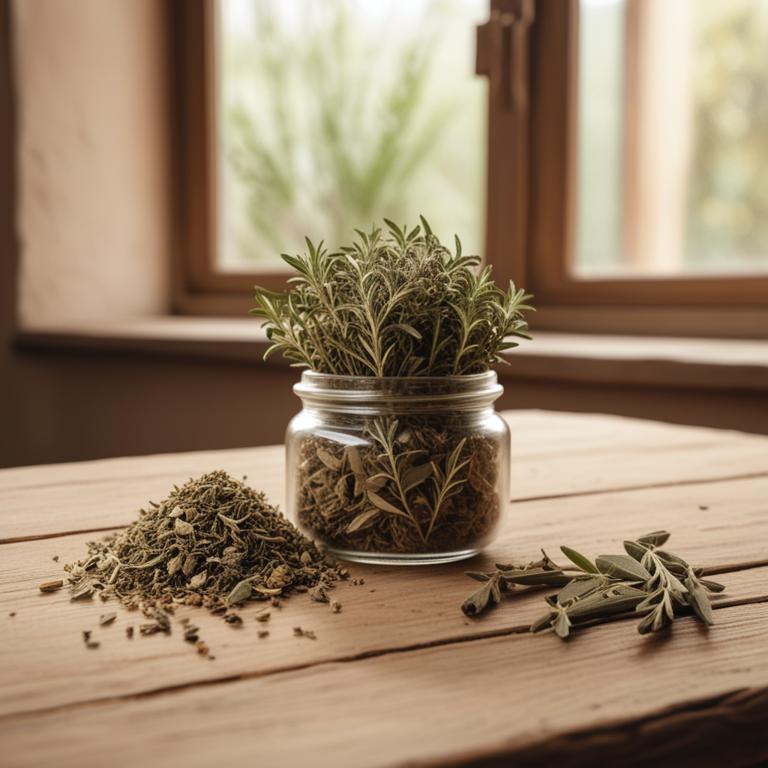
Grey Hair Causes, Treatment, and Medicinal Herbal Preparations

Dry Skin Relief: Understanding Causes and Herbal Preparations
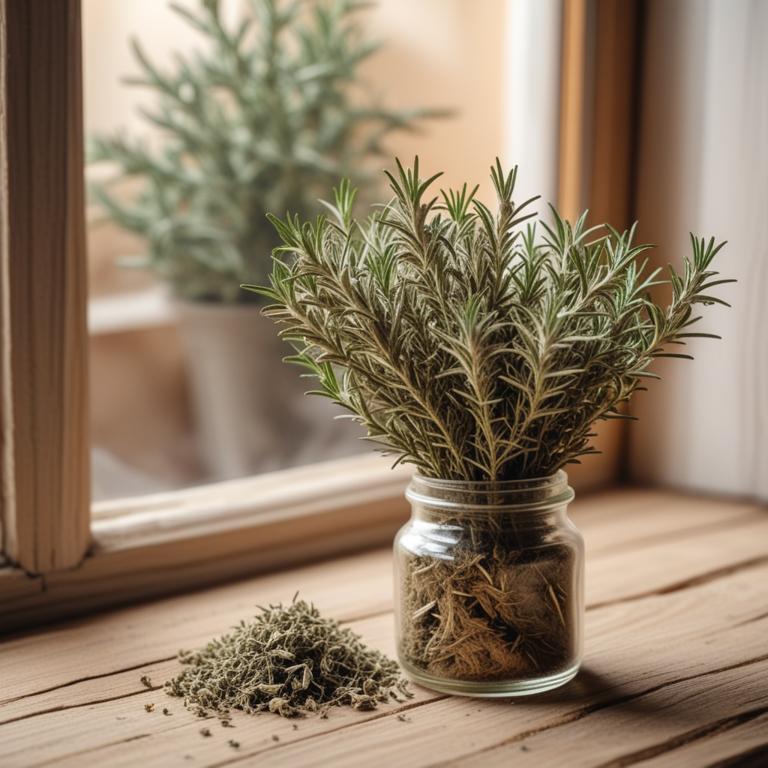
Oily Face: Causes and Natural Remedies Using Medicinal Herbs and Herbal Preparations

Causes and Herbal Remedies for Bleeding Spots in Mouth: A Comprehensive Guide
